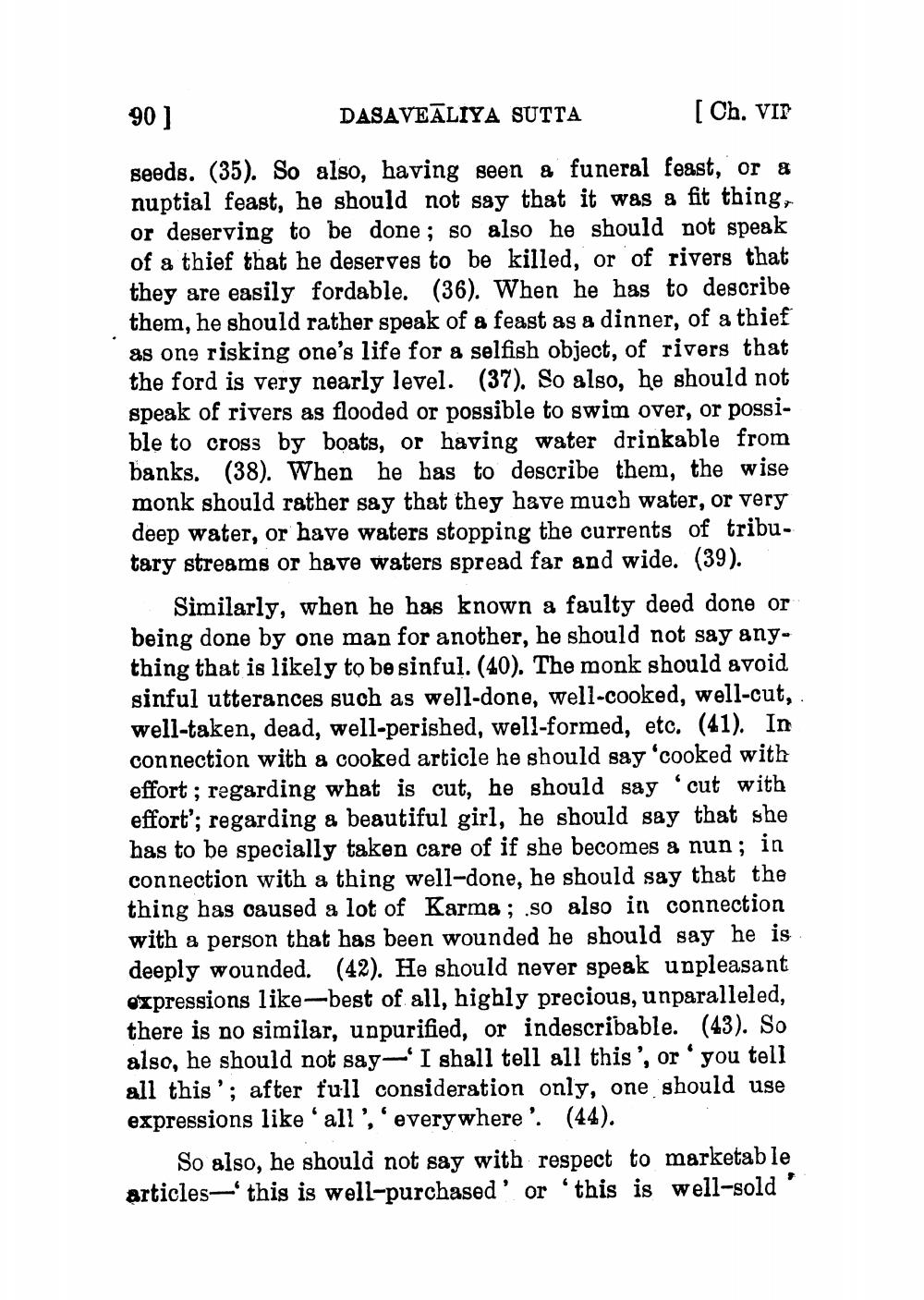________________
90 ]
DASAVEĀLIYA SUTTA
[Ch. VII
seeds. (35). So also, having seen & funeral feast, or a nuptial feast, he should not say that it was a fit thing, or deserving to be done ; so also he should not speak of a thief that he deserves to be killed, or of rivers that they are easily fordable. (36). When he has to describe them, he should rather speak of a feast as a dinner, of a thief as one risking one's life for a selfish object, of rivers that the ford is very nearly level. (37). So also, he should not speak of rivers as flooded or possible to swim over, or possible to cross by boats, or having water drinkable from banks. (38). When he has to describe them, the wise monk should rather say that they have much water, or very deep water, or have waters stopping the currents of tributary streams or have waters spread far and wide. (39).
Similarly, when he has known a faulty deed done or being done by one man for another, he should not say anything that is likely to be sinful. (40). The monk should avoid sinful utterances such as well-done, well-cooked, well-cut, well-taken, dead, well-perished, well-formed, etc. (41). In connection with a cooked article he should say 'cooked with effort; regarding what is cut, he should say 'cut with effort'; regarding & beautiful girl, he should say that she has to be specially taken care of if she becomes & nun; in connection with a thing well-done, he should say that the thing has caused a lot of Karma ; .so also in connection with a person that has been wounded he should say he is deeply wounded. (42). He should never speak unpleasant expressions like-best of all, highly precious, unparalleled, there is no similar, unpurified, or indescribable. (43). So also, he should not say' I shall tell all this ', or you tell all this '; after full consideration only, one should use expressions like 'all', 'everywhere'. (44).
So also, he should not say with respect to marketable articles, this is well-purchased' or 'this is well-sold'




